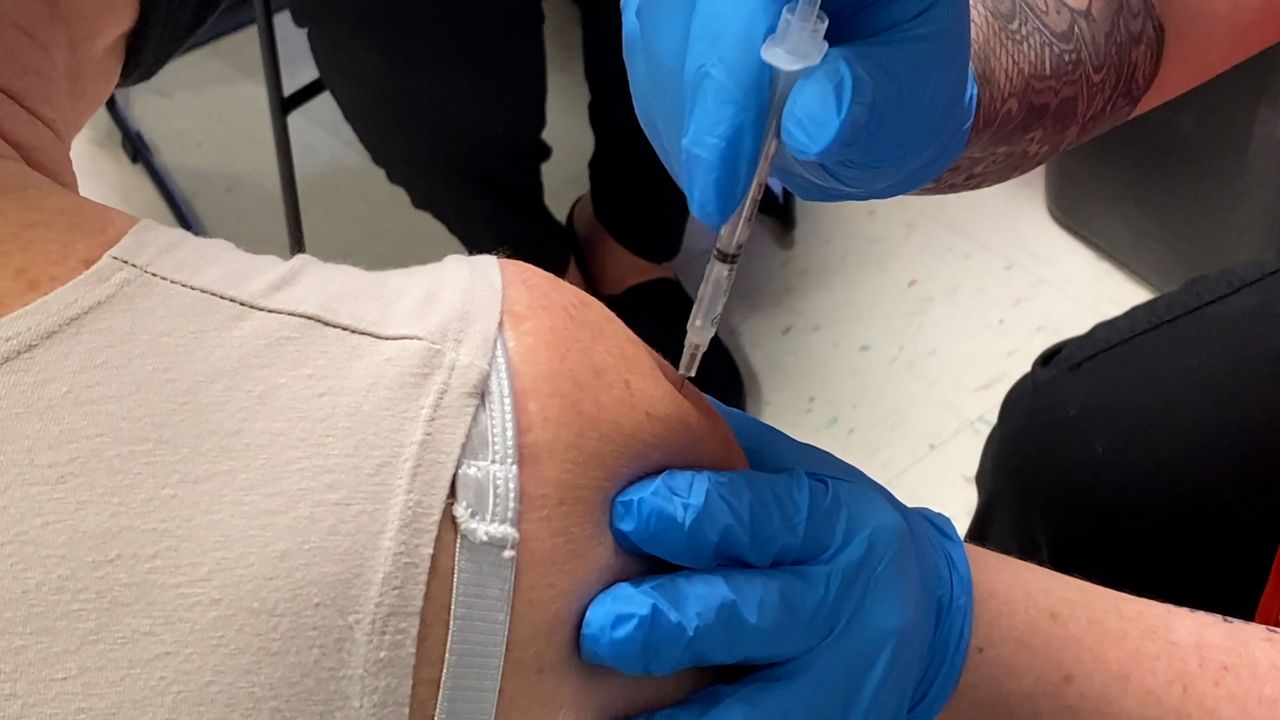CLEVELAND — The COVID-19 vaccine is now being distributed across the country, and at this point, it’s only being administered via shot. For people afraid of those sharp objects, University Hospitals physicians are making a point to help alleviate those fears.
Throughout her career as a pediatric neurosurgeon, Dr. Krystal Tomei has had to administer her share of shots, but that doesn’t mean she likes to get them herself.
“I am terrified of needles,” she said. “Which is ironic because I’m a surgeon. And so, I use them, and I have no problem if they’re turned away from me.”
That phobia didn’t stop her from getting the COVID-19 vaccine.
“The technology behind the vaccine has been decades in the making,” she said. “And we have to trust that and believe that that is there to protect us.”
She uses her own method of distraction to get through the pinch.
“I turn my head away, I bite my hand, and I just sort of muffle my screen into my hand, if you will, into the hand that I’m actually biting while I get my shot,” said Tomei.
Dr. Carolyn Ievers-Landis, a clinical psychologist with University Hospitals Rainbow Babies & Children’s Hospital, suggests some less painful coping mechanisms.
“Our brains are powerful, and we can get over anything we need to do or want to do,” she said.
Right now, images of people getting the vaccine are everywhere. They’re meant to put people at ease, but for those with a fear of needles, it could exacerbate that fear.
Ievers-Landis said thinking positive thoughts before going for your shot can really help make it easier to get through.
“Thinking about that excitement that all of us are doing this together across the whole world and how unifying and fun and exciting this is,” she said.
She also recommends putting on an imaginary accessory — a “magic glove.”
“And, you’re going to put it on your and and you’re going to move it all the way up, which is where you would be getting the vaccination, so that it’s coating your whole arm,” she said.
She said the glove’s actually been proven to work and provide an invisible layer of protection over the shot site. She suggests practicing at home before trying it with the shot.
Deep breaths can also help, she said, as well as visualizing yourself on vacation.
“Like, I’m on the beach, enjoying the sun, and they’re like, ‘OK, done!’” said Ievers-Landis. “And you’re like, ‘What? You gave it to me?’”
If you have a phobia of needles, know you’re not alone.
“It’s totally normal to be scared of needles, of the vaccine, of the unknown,” said Tomei.
But, that doesn’t mean you should avoid the vaccine.
“The needle is a single poke that lasts a few seconds, and the protection afforded by the vaccine far, far, far outweighs that,” said Dr. Tomei.
If you or someone you know is avoiding necessary medical care because of a phobia of needles, health experts recommend seeking professional help from a counselor or doctor.



